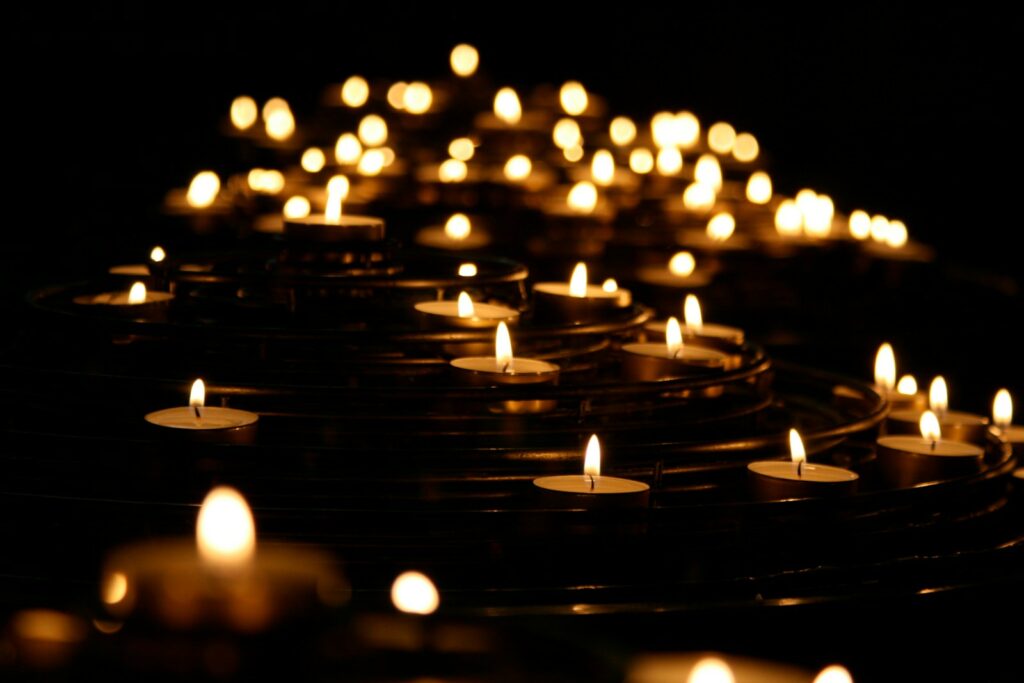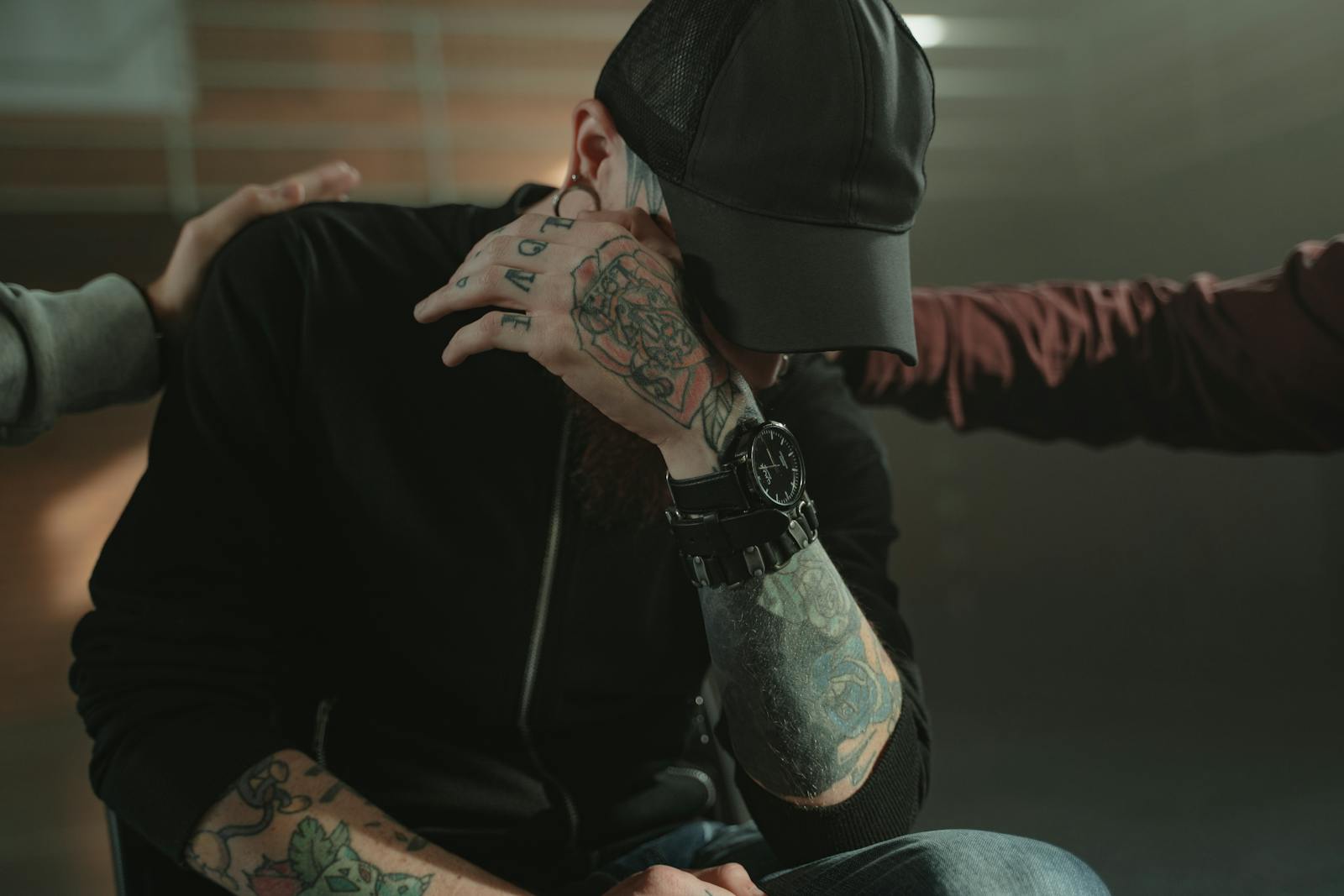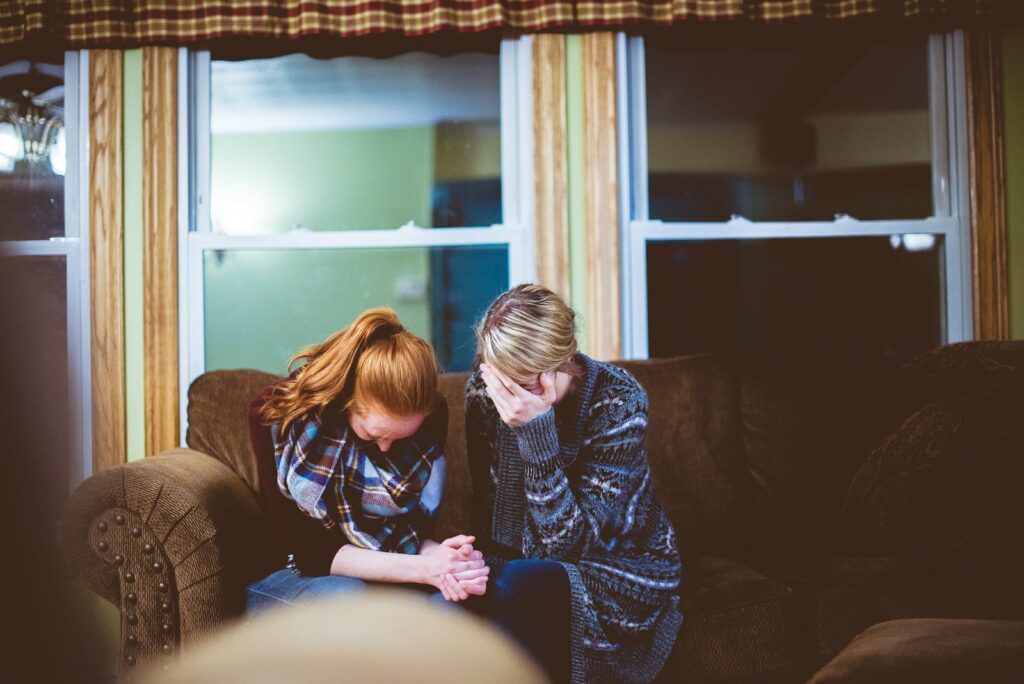Losing someone you love changes everything. The familiar routines, shared memories, and daily conversations that once brought comfort suddenly become painful reminders of what’s gone. Whether you’ve lost a family member, friend, or another significant person in your life, grief can feel overwhelming and isolating.
The journey through grief doesn’t have a timeline, and there’s no “right” way to process such profound loss. While grief is a natural human response to loss, professional grief counseling can provide the support, tools, and safe space needed to navigate this difficult path toward healing.

Photo by Mike Labrum on Unsplash
What Is Meant by Grief Counseling?
Grief counseling is a specialized form of therapy designed to help people process the complex emotions, thoughts, and reactions that follow the death of a loved one. Unlike general therapy, grief counseling focuses specifically on helping individuals work through their loss while learning healthy coping strategies.
Professional grief counselors understand that each person’s experience with loss is unique. They provide education about the grieving process, teach practical coping techniques, and create a safe environment where you can talk openly about your feelings without judgment. The goal isn’t to “get over” your loss, but rather to help you adjust to your new reality while honoring your loved one’s memory.
Grief counseling serves multiple purposes: it validates your emotions, helps you understand that your reactions are normal, and provides tools to manage difficult days. Most importantly, it offers hope that healing is possible, even when despair feels overwhelming.
Ready to Start Therapy?
Your healing journey can begin today. Fill out the form below to connect with a therapist who truly listens and understands.
The Grieving Process and Common Grief Reactions
Many people are familiar with the five stages of grief—denial, anger, bargaining, depression, and acceptance—first described by Elisabeth Kübler-Ross. However, grief doesn’t follow a linear path. You might experience these stages in any order, skip some entirely, or cycle through them repeatedly.
- Denial often appears first as a protective mechanism. You might feel numb, struggle to believe your loved one is gone, or find yourself reaching for the phone to call them. This isn’t weakness; it’s your mind’s way of pacing the emotional impact.
- Anger can emerge as reality sets in. You might feel angry at the person who died, medical professionals, family members, or even yourself. Questioning why this happened or feeling frustrated with your situation is completely normal.
- Bargaining involves the “what if” and “if only” thoughts. You might replay events leading to the death, wishing you could have done something differently or imagining scenarios where the outcome was different.
- Depression in grief isn’t the same as clinical depression, though it can trigger depressive symptoms. This stage involves deep sadness, hopelessness, and difficulty imagining life without your loved one. The emptiness feels overwhelming, and you might wonder if happiness is possible again.
- Acceptance doesn’t mean you’re “okay” with the loss. Instead, it means acknowledging that your loved one is gone and beginning to adjust to life without them. This stage often brings a sense of peace, though grief may still surface unexpectedly.
Common grief reactions extend beyond these stages. You might experience disbelief, guilt, fear, panic, physical symptoms like fatigue or sleep disturbances, difficulty concentrating, or changes in appetite. These reactions can persist for months or even years, and their intensity may surprise you.
Complicated Grief: When Healing Feels Stuck
While most people gradually learn to cope with their loss, approximately 10-20% of bereaved individuals develop complicated grief. This condition occurs when intense grief reactions persist for an extended period—typically a year or longer—and significantly interfere with daily functioning.
Complicated grief may develop when the death was sudden, violent, or traumatic. Losing a child, parent, or spouse can be particularly challenging to process. Other risk factors include a history of depression or anxiety, lack of social support, or multiple recent losses.
Symptoms of complicated grief include:
- Prolonged, intense yearning for the deceased
- Difficulty accepting the death
- Persistent disbelief or denial
- Intrusive thoughts about the person who died
- Extreme avoidance of reminders
- Loss of meaning and purpose
- Difficulty moving forward with life
- Severe depressive symptoms that don’t improve over time
If you recognize these symptoms in yourself, know that professional help can make a significant difference. Traumatic grief, which occurs after sudden or violent deaths, requires specialized treatment approaches that address both grief and trauma responses.
What Kind of Therapy Is Best for Grief?
Several therapeutic approaches have proven effective for grief counseling, and the best option depends on your individual needs, the nature of your loss, and your personal preferences.
Individual Counseling
Individual counseling with trained grief counselors provides personalized attention and allows you to work through your unique experience at your own pace. These one-on-one sessions create a safe space to explore difficult emotions, process traumatic memories, and develop coping strategies tailored to your situation.
Support Groups and Bereavement Groups
Support groups and bereavement groups offer the comfort of connecting with others who understand your experience. Sharing your story with people who have walked a similar path can reduce feelings of isolation and provide a valuable perspective. Many people find tremendous healing in both giving and receiving support within these communities.
Traumatic Grief Approach
Trauma-informed approaches are essential when dealing with sudden death, violence, or other traumatic circumstances surrounding the loss. These methods address both grief and trauma symptoms simultaneously, helping you process the traumatic aspects of your loss while working through your grief.
Research indicates that Dialectical Behavior Therapy (DBT) can be particularly effective for complicated grief. DBT teaches emotional regulation skills, distress tolerance techniques, and mindfulness practices that help manage intense emotions while building resilience over time.
Professional grief counselors at specialized grief counseling centers understand the complexity of loss and can recommend the most appropriate treatment approach for your situation. They may combine different techniques or adjust their approach as your needs change throughout the healing process.
The 3 C’s of Grief: What They Mean and Why They Matter
Many grief counselors reference the “3 C’s of grief” as guiding principles for the healing journey. While different frameworks exist, these principles typically focus on Choose, Connect, and Communicate (or alternatively, Courage, Compassion, and Community).
1. Choose
Choosing refers to the daily decision to engage in healing activities, seek support when needed, and take care of yourself. Grief can make even simple decisions feel overwhelming, but choosing to participate in your healing process is a powerful step forward.
2. Connect
Connect emphasizes the importance of maintaining relationships with family, friends, and support systems. Isolation often worsens grief, while connection provides comfort, understanding, and hope. This might mean reaching out to loved ones, joining support groups, or working with a professional counselor.
3. Communicate
Communicating involves expressing your thoughts, feelings, and needs to others. Grief can be lonely when kept inside, but sharing your experience—whether through conversation, writing, art, or other forms of expression—helps process emotions and reduces their intensity.
These principles work together to create a framework for active participation in your healing journey, reminding you that while grief is something that happens to you, healing involves choices you can make each day.
How Grief Counselors Support Healing
Professional grief counselors bring specialized training and experience to help you navigate your loss. They create a safe, non-judgmental environment where you can explore your feelings without fear of criticism or advice about “moving on.”
Your counselor will help you understand that your grief reactions are normal human responses to loss. They’ll work with you to identify healthy coping strategies, process difficult emotions like guilt or anger, and address any complications such as depressive symptoms or anxiety that may arise.
Grief counselors also help families navigate the challenges that loss brings to relationships. Children and youth often need specialized support to understand and process loss in age-appropriate ways. Parents grieving the loss of a child face unique challenges that require a specialized understanding and approach.
Many grief counselors have experience with specific types of loss, such as sudden death, loss of a parent, or traumatic loss. They understand the particular challenges these circumstances present and can provide targeted support for your situation.
Professional help becomes especially important when grief interferes with your ability to function, when you’re experiencing thoughts of self-harm, or when substance use becomes a way of coping with pain. Grief counselors can provide immediate support and connect you with additional resources as needed.
Grief Counseling Center: A Place for Support and Growth
A grief counseling center provides comprehensive services designed to meet diverse needs within the grieving community. These centers typically offer individual counseling, family therapy, support groups, educational workshops, and specialized programs for different types of loss.
When you first contact a grief counseling center, a counselor will typically call to discuss your needs and recommend appropriate services. This initial conversation helps ensure you’re matched with the right type of support from the beginning.
Many centers provide services not just for individuals but for entire communities affected by loss. They may offer programs for hospice patients and their families, support for children and adolescents, and resources for specific populations such as veterans or those who have lost someone to suicide.
The benefit of working with a specialized center is access to professionals who understand grief deeply and can provide ongoing support as your needs change over time. These centers often maintain networks of community resources and can help connect you with additional support services.
Creating a New Reality After Loss
One of the most challenging aspects of grief is learning to live in a world that no longer includes your loved one. Grief counseling helps you navigate this process of creating a new reality while honoring your loved one’s memory and the relationship you shared.
This doesn’t mean forgetting or “moving on” from your loved one. Instead, it means finding ways to carry their memory forward while building a meaningful life. Many people find comfort in continuing bonds with the deceased through rituals, memorials, or carrying forward their values and traditions.
Building resilience after loss involves developing new coping skills, finding sources of meaning and purpose, and gradually rebuilding confidence in your ability to handle life’s challenges. This process takes time, and setbacks are normal parts of the journey.
Professional counseling provides support during this reconstruction phase, helping you identify your strengths, develop new routines, and find ways to honor your grief while also embracing hope for the future.

Taking the Next Step Toward Healing
Grief is one of the most universal human experiences, yet it can feel profoundly isolating. The pain of losing someone important to you is real and significant, and you don’t have to carry this burden alone.
Professional grief counseling offers a path toward healing that honors both your loss and your need to continue living. Through compassionate support, practical tools, and a safe space to process your emotions, grief counselors can help you navigate this difficult journey while building resilience for the future.
Remember that seeking help is a sign of strength, not weakness. Most people need support at some point in their grief journey, and there’s no shame in reaching out when you’re struggling.
If you or someone you love is struggling with grief, don’t carry the weight alone. Professional grief counseling can provide the support, tools, and hope needed to move through grief toward healing. Find peace with Groundbreaker Therapy and take the first step toward reclaiming your life while honoring your loved one’s memory.


